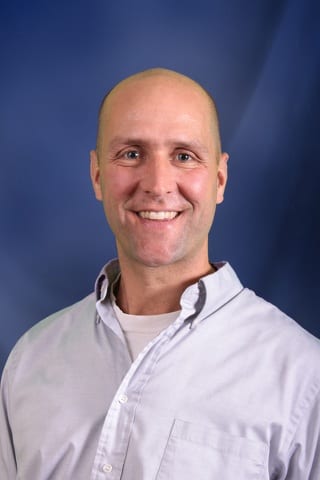Penn State researchers Gary Koopmann, Weicheng Chen, and Jeremy Frank founded KCF Technologies in 2000. After slow initial growth, the company is now fast-tracking its success thanks to its SmartDiagnostics product, which helps manufacturers minimize machinery downtime.
KCF was in the news last month after a visit from Department of Defense agents to review a specific contract; KCF president Jeremy Frank says he is confident about the company’s future and noted that the dialogue “does not relate to our commercial business or SmartDiagnostics program. We look forward to continuing our many years of successful work with the U.S. government.”
Frank remains focused on what he discussed with Town&Gown: KCF’s continuing growth, need for more employees, and future plans.
T&G: When you started KCF, was it just the three of you?
Frank: Yes, but Dr. Coopman and Dr. Chen never left Penn State, so it literally was just me in a room until I started having an intern. By 2006 or so, I was able to hire some real engineers, some of whom are still with us now. About 2010 or 11, we found that we could turn SmartDiagnostics into a commercial form that had broad applicability in industrial markets, and we’ve been on exponential growth ever since.
T&G: Is KCF a leader in this field?
Frank: Absolutely, but we’ve been competing with companies like GE and Siemens, some of which also continue to be our customers. We’re a small player relative to some very big players. The interesting thing is that we’re having big success and they aren’t.
It would be very difficult for GE to do business the way that we do. We can go into a factory and make things up as we go along, understand the problems and develop solutions to those problems. Their size is an inhibitor to this.
T&G: Now you’re approaching 160 employees?
Frank: It’s like watching a dial go around; that’s how quickly we’re hiring. The majority of the jobs are salaried positions that are challenging, that require thought and creativity and autonomy. We hire a lot of people right out of college and give them a couple months of onboarding, visiting factories and learning things. It’s not uncommon for people to say they’ve learned more after a month or two working here than they did during their whole time in college.
T&G: What are the qualifications?
Frank: I usually like to say engineers with social skills. Those are the people that can look at data and can be trained on engineering techniques to solve problems the way that we do it but that can also get on the phone and go visit the factory and meet the person who’s trying to make that operation run. We intend to hire another hundred people this year. It’s software programmers, electrical engineers, firmware engineers, R&D engineers.
T&G: What’s the company’s goal now?
Frank: The large-scale mission is to optimize American manufacturing – to basically eliminate the majority of solvable problems that exist within a current industrialized manufacturing center. The companies that take advantage of the new technologies and use them most effectively are going to gain a massively outsized competitive advantage, and we want those to be American companies.
T&G: Where will KCF be in five years?
Frank: If we continue growing at the rate that we are, and I fully intend that we will, we can be a billion-dollar-revenue company employing a thousand people within five years. It’s not only possible, but likely. And I don’t see that as the end. It will entirely depend on how the market unfolds. So far, the market conditions have been perfect for us to survive as a fast little fox that’s zooming around these huge elephants.
T&G: What happens when you become one of the elephants?
Frank: Well, the elephants have $20-$30 billion of revenue, so even at $2 [billion] or $3 billion, we wouldn’t be an elephant.
T&G: Does State College play in your plans long-term?
Frank: I don’t ever intend to leave, and therefore the company doesn’t ever intend to leave. The truth is, our customers aren’t here anyway, and they never will be. We really strike a balance with quality of life, and that’s one of the reasons that being in State College is central to our whole cultural values.
T&G: You have offices here, there, and everywhere in State College. Do you plan to consolidate?
Frank: We plan not to. To my surprise, when we started spreading around a bit, we actually became more effective. It’s just a combination of being outside, getting fresh air, but also we have meetings on the street, go to a coffee shop. Almost every other company builds a big building so that everybody can be together, but I have no intention to do that. I think being in the fiber of downtown is actually much more fruitful.
Tracey M. Dooms is a freelance writer in State College.



